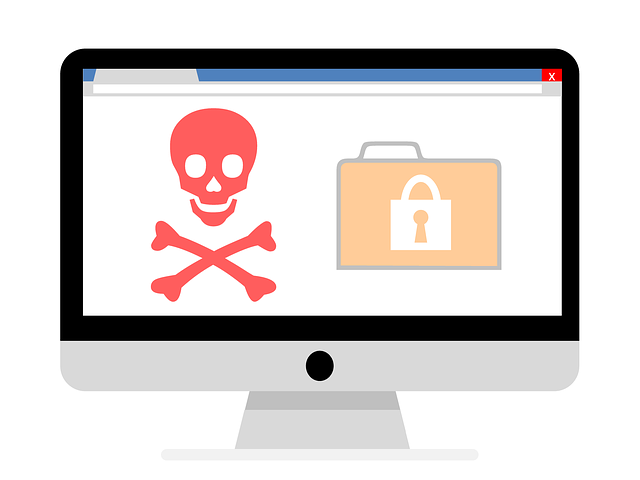IT Consulting | IT Support | Managed Services | New Jersey Computer Support Services
Common Adware Viruses

It's getting harder and harder to tell the difference between a virus and an ordinary online advertising function. The density of pop-up advertising is increasing rapidly. Pop-ups have been very lucrative, bringing in website addresses which are used to generate sales. A study of 1.7 billion pop-up ads showed that the average rate of conversion--that is, "pay dirt" for pop-ups is 3.09 percent. The pop-up ad maker gets something for his or her trouble 3 times for every hundred pop-up ad victims. The best pop-ups get a conversion rate of 9.3 percent. These money-makers are not considered malware, although some computer users who are bothered by them are considering virtually all software that loads and runs without user control to be in that category.
Pop Ups and adware.
The difference between pop-up advertising and common adware is that adware brings something with it. Adware brings software that sends information about your computer back to its originator. These little applications track your browsing habits and can send you pop-ups related to sites and topics you have visited. Each piece of adware slows your computer down by an increment, reducing your internet speed. Some common adware contains keyloggers and spyware which can damage your computer and begin to invade your privacy. It is called adware, (sometimes it contains pop-up ads and sometimes it does not) not because it contains ads, but because the malware in it benefits advertisers or businesses that want to force your attention.
The worst adware.
The worst adware is the one that is plaguing you at the time. One technically minded computer user says he has four browsers on his system, Chrome, Internet Explorer, Firefox, and a new one called "Steam." He says whenever he opens any of his browsers his computer is directed to "some bullshit ad." He tried all kinds of software that claims to clear out common adware and nothing works. Nobody seems to have a name for it.
You could see a tempting piece of freeware online. You decide to download it and install it. You authorize the download. Sometimes if you look carefully at the licensing agreement you will see that you are downloading more than you thought, other hidden applications go along with it. Often they are mentioned in the reading material that goes with the installation. Sometimes you are actually asked to install a number of other programs along with the chosen freeware. The additional software often has some promising names. You may actually have the choice not to add the extras. The adware attached to the freeware package is what makes the freeware possible. It's called "monetizing" the software. The freeware manufacture collects money from advertisers who track your behavior online or collect other information useful to the advertisers. Disabling the adware that accompanies the freeware makes the freeware itself malfunction.
Common Adware is often harmless. It may make your computer function more slowly, but often not noticeably so. However, it may also be serious malware seeking out important personal information to send it to its creator. Eventually, the malware can make a serious dent in your computer's performance. Removing adware may be difficult. Few antivirus programs are designed to detect it. The applications are usually not counted as software on your computer's application list and can't be simply uninstalled.
In 2017, the adware called "Fireball" infected 250 million computers whose users downloaded it via freeware. The adware hijacked browsers, making them change the default search engine to one that resembled established search engines but were actually tracking their web traffic for a Beijing-based digital marketing firm called Rafotech. The malware had the ability to remotely run any code on the infected machines or download additional malware.
In 2015, Lenovo Computers made a huge blunder by pre-installing a piece of adware in their new computers. The software, called Superfish, after the advertising company that invented it, hijacked the computer's web connection and stuffed the memory with pages full of pop-up adds. It did this by setting itself up as a proxy for the normal web connection so that all the web traffic ran through the software. The adware was in the middle of the users' internet connection and could monitor what was on the computer screen then download its own JavaScript into web pages to display ads.
The hidden persuader.
When the common adware steals information about your computer searches or activities, it should be an illegal violation of privacy law. However, the makers of the software bypass the law because when you signed the licensing agreement for the freeware, you may have given permission for the software to operate on your computer.
You should keep in mind that today's computers are rarely offline. Software that we use thinking that we are using it offline are likely to be connected and downloading data and applications as you go about your offline business. You might be downloading adware without knowing it.
Solutions.
The best solution for serious adware invasion is regularly backing up your computer in a point-by-point manner, a virtual hard drive, stored on an external drive or in the cloud, so that the original software is stored intact and the entire system can be rebuilt if you computer becomes inoperable.
Integrated Computer Services, Inc (ICS) specializes in IT consulting and computer networking services for businesses with 10 to 1000 employees, established in 2002. We offer managed IT services, network installation, and cloud migrations, network security, and more. Please contact us to learn more.


